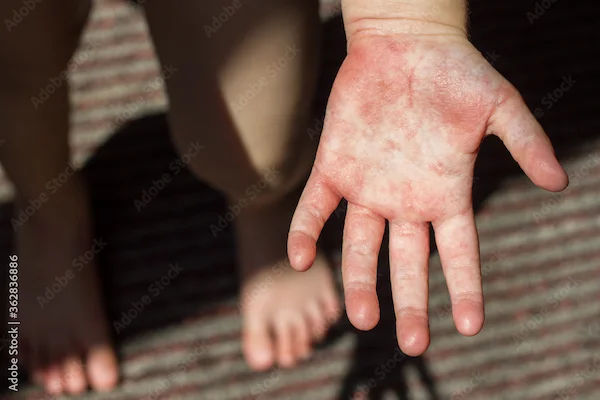Understanding Wrinkles in the Retina
Know what are retinal wrinkles, their causes, symptoms, and treatment options. Learn how lifestyle changes can help manage and prevent wrinkles in the retina for better eye health.


Introduction
Wrinkles in the retina, medically known as epiretinal membranes (ERM) or macular puckers, are a common eye condition that can affect vision. While the term "wrinkles" might sound harmless, these retinal changes can sometimes lead to visual disturbances. If you or a loved one has been diagnosed with this condition, it’s natural to have questions.
This article will help you understand what retinal wrinkles are, their causes, symptoms, and how they can be managed.
What Are Wrinkles in the Retina?
The retina is the light-sensitive layer at the back of your eye that sends visual signals to your brain. Sometimes, a thin layer of scar tissue forms on the retina’s surface, causing it to wrinkle or pucker. This condition is called an epiretinal membrane (ERM).
- Mild cases may not cause noticeable symptoms.
- Severe cases can distort or blur central vision, making tasks like reading or recognizing faces difficult.
Consult a Top Eye Specialist for the best advice
What Causes Wrinkles in the Retina?
Retinal wrinkles often develop due to natural ageing, but other factors can contribute:
1. Ageing: The vitreous gel inside the eye shrinks with age, sometimes pulling on the retina and causing scar tissue to form.
2. Eye Conditions: Previous eye surgeries, retinal tears, or inflammation (uveitis) can increase the risk.
3. Diabetes: Diabetic retinopathy can lead to retinal changes.
4. Eye Trauma: Injuries may trigger scar tissue formation.
Symptoms to Watch For
Many people with mild ERM don’t experience symptoms. However, if the wrinkle affects the macula (the central part of the retina), you may notice:
- Blurred or distorted vision (straight lines may appear wavy).
- Difficulty reading small print.
- Gray or cloudy spots in central vision.
- Double vision (rare).
If you experience sudden vision changes, consult an eye specialist immediately.
How Are Retinal Wrinkles Diagnosed?
An ophthalmologist (eye doctor) can diagnose ERM using:
- Dilated Eye Exam: Eye drops widen the pupil, allowing the doctor to examine the retina.
- Optical Coherence Tomography (OCT): A painless imaging test that provides detailed retina scans.
Can Retinal Wrinkles Be Treated?
If you have been diagnosed with retinal wrinkles, your doctor may recommend a treatment option based on the severity of your condition. Here are the possible treatment options:
1. Observation (For Mild Cases)
- If symptoms are minimal, your doctor may recommend regular check-ups without immediate treatment.
2. Surgery (For Severe Cases)
If vision is significantly affected, a surgical procedure called vitrectomy may be performed:
- The vitreous gel is removed to reduce retinal traction.
- The scar tissue is delicately peeled off.
- Recovery takes weeks, and vision may improve gradually.
3. Lifestyle & Eye Care Tips
Making certain lifestyle changes can help protect your eye health. Here’s what you can do:
- Protect Your Eyes: Wear sunglasses to shield against UV rays.
- Control Blood Sugar (If Diabetic): Helps prevent diabetic retinopathy.
- Eat Eye-Healthy Foods: Leafy greens, fish, and nuts support retinal health.
- Avoid Smoking: Smoking increases the risk of eye diseases.
When to See a Doctor
Schedule an eye exam if you notice:
- Sudden vision changes
- Wavy or distorted vision
- Difficulty reading or recognizing faces
Early detection helps prevent complications.
Final Thoughts
While wrinkles in the retina can be concerning, many people adapt well with mild cases. Advanced treatments like surgery can restore vision if needed. Regular eye check-ups are crucial, especially if you’re over 50 or have diabetes.
Consult a Top Eye Specialist for the best advice
Consult a Top Eye Specialist for the best advice

Dr. Sujit Pahari
Ophthalmologist
22 Years • MBBS, DNB, DOMS Ophthalmologist/ Eye Surgeon. FIC (Ophthal).
Bilaspur
Apollo Hospitals Seepat Road, Bilaspur

Dr Rajesh Rastogi
Ophthalmologist
33 Years • MBBS, MS Ophthalmology
New Delhi
Rotary Diabetic Centre, New Delhi
Dr. Padmini S
Ophthalmologist
4 Years • MBBS,MS
Bengaluru
Apollo Medical Center, Marathahalli, Bengaluru
Dr. S Venkateswaran
Ophthalmologist
35 Years • MBBS, PGD (OPTHALMOLOGY)
Tiruvannamalai
Shiva Eye And General Hospital, Tiruvannamalai

Dr. Sneha T Khurana
Ophthalmologist
9 Years • MBBS, MS Ophthalmology
Gurugram
GS multispeciality clinic, Gurugram
Consult a Top Eye Specialist for the best advice

Dr. Sujit Pahari
Ophthalmologist
22 Years • MBBS, DNB, DOMS Ophthalmologist/ Eye Surgeon. FIC (Ophthal).
Bilaspur
Apollo Hospitals Seepat Road, Bilaspur

Dr Rajesh Rastogi
Ophthalmologist
33 Years • MBBS, MS Ophthalmology
New Delhi
Rotary Diabetic Centre, New Delhi
Dr. Padmini S
Ophthalmologist
4 Years • MBBS,MS
Bengaluru
Apollo Medical Center, Marathahalli, Bengaluru
Dr. S Venkateswaran
Ophthalmologist
35 Years • MBBS, PGD (OPTHALMOLOGY)
Tiruvannamalai
Shiva Eye And General Hospital, Tiruvannamalai

Dr. Sneha T Khurana
Ophthalmologist
9 Years • MBBS, MS Ophthalmology
Gurugram
GS multispeciality clinic, Gurugram



.webp)
